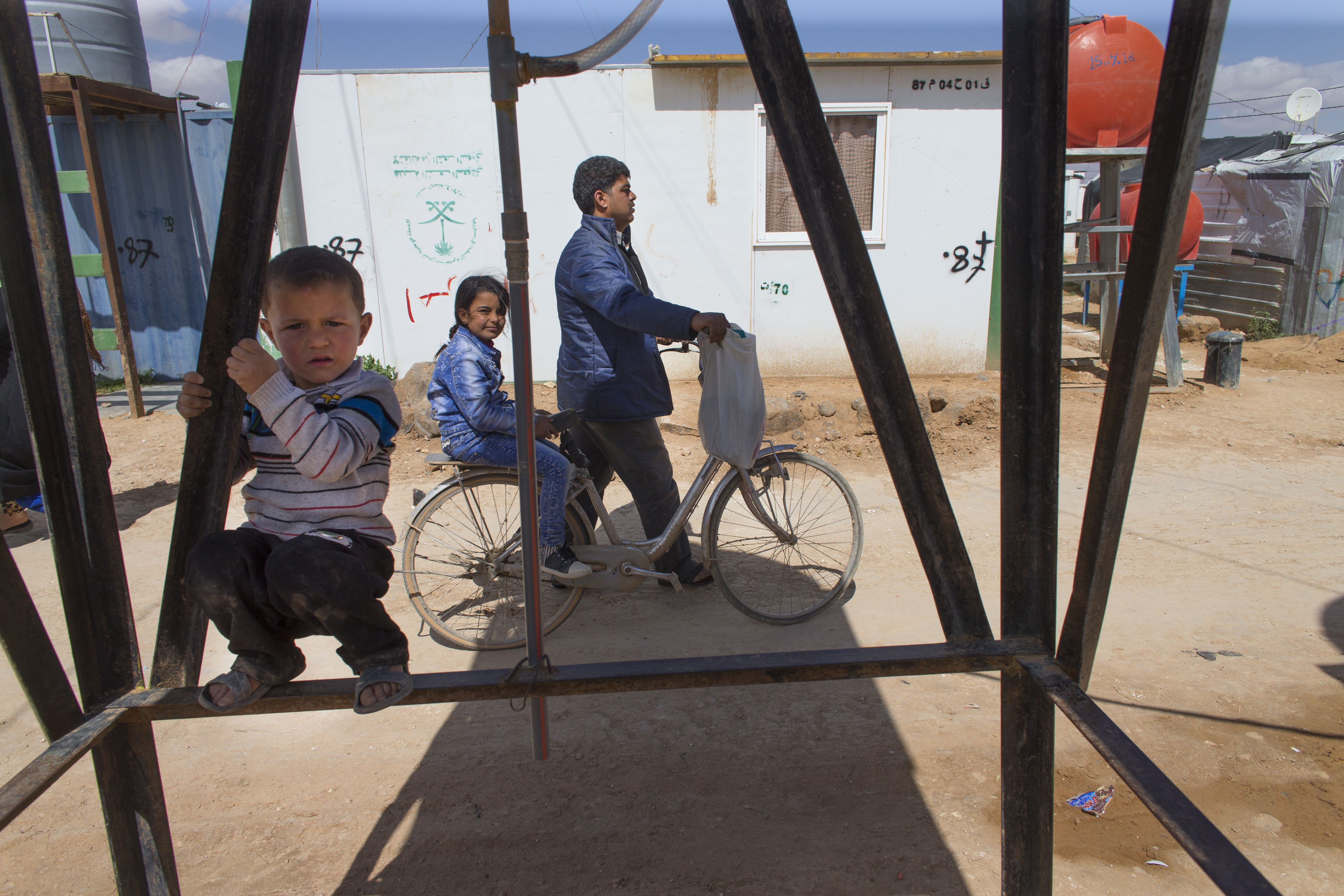ZAATARI REFUGEE CAMP, Jordan—They escaped the barrel bomb that destroyed their neighborhood mosque in Daraa, Syria. But here in Jordan, Mohamed Al Jundi, his wife and their four children face a harsh tradeoff that has become all too common among the 80,000 residents of the Zaatari refugee camp.
"Sometimes I have to sell a bag of milk or sugar to buy his medicine," Al Jundi said, gesturing toward his 9-year-old son, Rida, squirming uncomfortably in a wheelchair. Rida was waiting to be seen by Wisconsin doctor Tarif Bakdash at a clinic run by the Syrian Medical Society. Bakdash, born in Syria, is leader of a group of volunteers that have been working in the camp.
The boy suffers a painful tightening of the tendons caused by cerebral palsy. Two surgeries on his legs have failed; now the doctors say he needs four surgeries if he ever hopes to walk again.
Grateful as he is for the monthly food allotment of 20 Jordanian dinar, Al Jundi finds he must sometimes sacrifice dietary staples for medicine or other necessities. It is a familiar dilemma.
"Always we sell. Even for blankets we sell," said another resident of the camp, Jamal Jundi, who is 55 and has lived in Zaatari now for more than two years. "If someone does not have work, he has to go out and sell. We sell to people in the streets. And we eat less so it will last us for a long time."
He lives in the camp with 10 others—two adults and eight children.
The United Nations gives each person at Zaatari the monthly allowance of 20 Jordanian dinar with which to buy food. Roughly twice a year they receive money for clothing.
The camp has two supermarkets, which swarm with activity at the beginning of the month when the families receive their U.N. money. At Tazweed Center (Tazweed translates as "resupply") families load up on five kilogram bags of rice, 10-kilogram sacks of sugar and bags of powdered milk.
Outside, men wait with heavy steel wheelbarrows, shouting "Arabai! Arabai!," which means "dolly." They try to earn money by transporting groceries to the homes of the buyers.
But another call goes up too; it translates as "You want to sell this? You want to sell this?"
When families sell their food, they set in motion a chain of commerce. The new buyers often pay less than the original family, perhaps 8 dinars instead of 10.
Often the resold food is sold a third time. Sometimes it winds up in one of the small stores or fast-food businesses on Zaatari's crowded market street.












